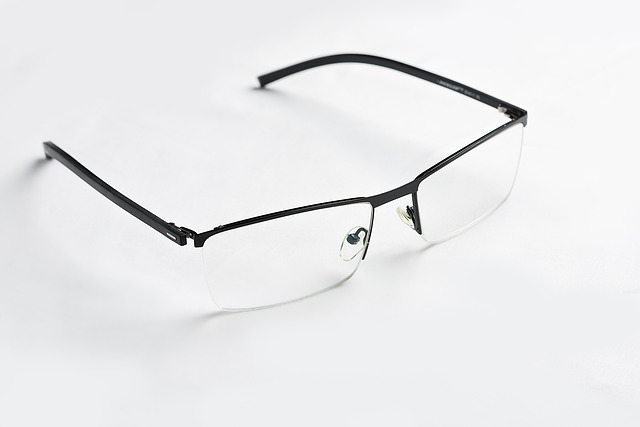Need New Prescription Glasses? Browse Styles Designed for Both Comfort and Clarity
Need new prescription glasses? Browse styles designed for both comfort and clarity. From budget-friendly to designer options, find the right frames and lenses that match your vision needs and personal style. Read to see which kind of prescription glasses best suits your needs.

Understanding Prescription Glasses Basics
Prescription glasses are custom-made eyewear designed to correct various vision problems, including nearsightedness, farsightedness, astigmatism, and presbyopia. The prescription, typically provided by an optometrist or ophthalmologist after a comprehensive eye exam, contains specific measurements that determine how your lenses should be crafted. These measurements include sphere (indicating the power needed to correct vision), cylinder (correcting astigmatism), and axis (the orientation of the cylinder). Modern prescription glasses can address multiple vision issues simultaneously, allowing for clearer sight at various distances.
How Much Do Prescription Glasses Cost?
The cost of prescription glasses varies significantly based on several factors, including frame materials, lens technology, coatings, and where you purchase them. Basic prescription glasses can start around $50-$100 at discount retailers, while mid-range options typically fall between $150-$300. Designer frames with advanced lens technologies can exceed $500 or more. Many vision insurance plans cover a portion of these costs, potentially reducing your out-of-pocket expenses.
Lens add-ons like anti-reflective coatings, blue light filtering, photochromic features, or progressive prescriptions will increase the final price. Online retailers often offer more competitive pricing than traditional optical shops, with complete prescription glasses sometimes available for less than $100.
| Provider Type | Basic Frame & Lens | Mid-Range Options | Premium/Designer |
|---|---|---|---|
| Online Retailers | $25-$100 | $100-$250 | $250-$500+ |
| Optical Chain Stores | $100-$200 | $200-$350 | $350-$600+ |
| Independent Opticians | $150-$300 | $300-$500 | $500-$1,000+ |
| Designer Boutiques | N/A | $350-$600 | $600-$1,500+ |
Prices, rates, or cost estimates mentioned in this article are based on the latest available information but may change over time. Independent research is advised before making financial decisions.
Where to Find Prescription Glasses for Sale
Today’s consumers have numerous options when shopping for prescription glasses. Traditional brick-and-mortar optical shops, including independent opticians and chain retailers like LensCrafters, Pearle Vision, and Warby Parker, offer the advantage of in-person fitting and adjustments. Many optometrists also maintain on-site optical shops where you can purchase glasses immediately after your eye exam.
The online eyewear market has expanded dramatically, with retailers like Zenni Optical, EyeBuyDirect, GlassesUSA, and Warby Parker’s online store offering convenient shopping experiences. These platforms typically provide virtual try-on tools, home try-on programs, and significantly lower prices than physical stores. Most online retailers accept prescriptions uploaded directly from customers, though they may require additional measurements like pupillary distance (PD).
Large retailers like Costco, Walmart, and Target also offer optical departments with competitive pricing and frequent promotions. When searching for prescription glasses for sale, comparing options across these various channels can help you find the best combination of quality, price, and convenience.
Choosing the Right Frames and Lenses
Selecting appropriate frames involves considering your face shape, lifestyle needs, and personal style. Round faces often benefit from angular frames, while square faces may look better with rounded frames that soften facial features. The size of the frames should be proportional to your face—neither too large nor too small.
For lens selection, consider your specific vision needs and lifestyle. High-index lenses are thinner and lighter, making them ideal for stronger prescriptions. Polycarbonate and Trivex lenses offer impact resistance, making them perfect for active individuals or children. Progressive lenses eliminate the visible line found in bifocals while providing correction for multiple vision needs.
Additional lens treatments can enhance functionality and comfort. Anti-reflective coatings reduce glare and eye strain, especially beneficial for those who spend significant time looking at screens. Blue light filtering can reduce digital eye strain, while scratch-resistant coatings extend the life of your lenses. UV protection is essential for outdoor wear, and photochromic lenses that darken in sunlight offer convenience for those frequently transitioning between indoor and outdoor environments.
Maintaining Your Prescription Glasses
Proper care extends the life and effectiveness of your prescription glasses. Always use both hands when removing glasses to prevent frame distortion, and store them in a protective case when not in use. Clean lenses daily with appropriate eyeglass cleaner and microfiber cloths—never paper towels or clothing, which can scratch the surface.
Regular adjustments at an optical shop can ensure your glasses remain comfortable and properly fitted. Most opticians offer free adjustments, even for glasses purchased elsewhere. Additionally, scheduling comprehensive eye exams every 1-2 years allows for timely prescription updates and early detection of potential eye health issues.
Finding the right prescription glasses combines addressing your vision needs with expressing your personal style. With options available at various price points and from numerous retailers, you can find eyewear that enhances both your vision and appearance. Whether you prefer shopping in person or online, understanding the basics of prescription glasses helps ensure you make the best choice for your eyes and budget.
This article is for informational purposes only and should not be considered medical advice. Please consult a qualified healthcare professional for personalized guidance and treatment.




